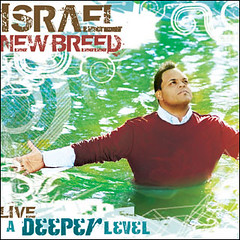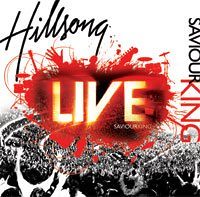This is a very good article on Worship by Gordon MacDonald.
Its a wee bit lengthy but Gordon covered many truths on worship and how we should approach Worship in church.
Read on and Be Blessed .... :)
The church of my childhood often used an innocuous word to describe all the events that led up to the 45-minute sermon. They were called the preliminaries, as in "Lord, please bless Pastor ____ as he preaches; oh, and bless the preliminaries."
Now, years later, I know that the preliminaries ought to have been called worship. These activities – songs, prayers, Bible readings, responsive readings (the closest we came to liturgy), offerings, and "sacramental" events were considered little more than warm-ups for the main event: the sermon.
Now, a slew of decades later, I know that we were badly out of alignment with what may actually be the most important single function of a church: Worship – the exuberant yet dignified celebration of who God is, what he has done, and that he is here among us.
Worship described
In many places, worship continues to be a much misunderstood event. To get off on the right foot in these thoughts, how about an expanded working description of worship? Let me suggest this: Worship is happening when a person or a people take time to reflect upon and honor the nature and the actions of God by offering him praise, thanksgiving, confession, offerings, and a submissive heart and mind. This can be done through the medium of song, silent meditation, speech, sacramental activity, and other forms of artistic expression. Preaching may be a part of these functions, but not necessarily the most important part.
A reformation in worship
Thankfully, we are passing through a time of reformation in expressions of worship. The content and style of worship music is changing. The purpose and methods of preaching are being altered. There is a re-focusing of attention away from people and toward God himself. And finally, there is greater understanding that worship can actually be a form of witness to the unchurched – pointing people outside the faith to Jesus Christ.
There is a new generation of biblical people that seem to long for greater exposure to the glory of the everlasting God. They seek an experience of grace in which there is assurance of forgiveness and realignment with Jesus Christ. They desire prayer that is substantial, preaching that calls them to higher levels of thought and activity, and music that enlivens the soul. They hunger for a divine encounter, (hopefully) not just an emotional experience, in which one will recover freshness of spirit, clarity of truth and guidance, and energizing hope. They want worship that will set their direction for living in the larger world.
When the Christ-follower enters the sanctuary, he/she comes from a tough and taxing world of work, study, and even leisure. It should be assumed that some would-be worshipers will likely bring fatigue, disillusionment, regret, anger, and deep sadness with them. Others will bring the rush of success, accomplishment, and joyful mood. The rest will be situated somewhere between these extremes.
The architecture of worship
When planning a worship event, the temptation, of course, is to build crowds by promising solutions to problems, offering entertainment, and promoting an experience of sensation that is not unlike what one might experience in a good movie or a rousing athletic event.
But the purpose of the church when it worships is to focus on God – not on ourselves, to rehearse what we know about him, what he has said to us, and what he has done in the past and is doing in the present, and (it must be added) promises to do in the future. One might dare to suggest that worship and its eucharistic elements of events such as The Lord's Supper and Baptism are moments of supreme intimacy when the Bride (the Church) celebrates her remarkable union with the Groom (Christ himself). No one should underestimate the power of the words: "Where two or three are there together, I (Christ) am in the midst of them ..."
After visiting churches in many parts of the world, author Philip Yancey recently asked, "Why do so few Christians appear to be enjoying themselves in their worship?" The question is worth our attention. For while worship is considered to be a form of work (liturgia equals work), it was always intended to be the highest form of work, an exhilarating, renewing form of labor that leaves people filled, not depleted; renewed, not more deeply trapped in dissatisfaction; and more internally certain, not confused.
Outcomes from worship
Worship comes in a thousand forms. No one style suits all. We are usually influenced to our expressions of exaltation and celebration by our cultural backgrounds, our personal structure of temperament, and even the ways of our own generation. It would be foolish to try to suggest that one way of worshiping is superior to others. Therefore, it is all the more important that we speak of worship outcomes: What should a genuine expression of worship accomplish in the life of the worshiper? Here are some possible answers:
- Worship should draw a sharp contrast between the kingdom of this world and the Kingdom of Heaven.
- Worship should focus on the living God and his revelation of himself as the Father, Son, and Holy Spirit.
- Worship should bring to our consciousness the acts and the character of God.
- Worship should call the worshiper to repentance – a confession of sinfulness in contrast to God's righteousness and a resulting sense of forgiveness and restoration.
- Worship should cause the worshiper to inventory his or her blessings in life and give thanks.
- Worship should provide a chance for one to see his or her work in the perspective of the Kingdom and give from the profits of labor.
- Worship should make the worshiper feel prayed for in terms of personal needs.
- Worship should refine the perspective of people so they see and pray for world events in light of the Kingdom purposes of God.
- Worship should offer encouragement and insight from the preached Word.
- Worship should send people back into the "streets" of the world with a renewed sense of energy, confidence, and purpose.
Authenticating worship
How would one know that a church, over the long haul, is achieving this number one purpose of "magnifying" or worshiping God? Some possible answers. It would be a church whose people have learned the unusual ability to be reverent when God is said to be especially present among his people in the worship event. It would be a church whose people have come to regard the time of worship as the highest point in the week and who have realized that this is an hour that one cannot afford to miss. It would be a church in which people have learned the spiritual art of thankfulness, the humility of sorrowful confession of sin, and the inestimable joy of giving. It would be a church where there is an appreciation of the wise mixture of the new and old forms of adoring God with creedal affirmation, ancient hymns, liturgical prayer joined together with contemporary song, extemporaneous intercession, provocative drama, and solemn silence.
How would one know, on any given Sunday, that a church had genuinely worshiped? Again, some possible answers. People who seemed tired when they came would leave with the unmistakable sign of excitement on their faces and in their step. People who came with regret about issues and experiences of the past week would leave reminded that they are forgiven and given a new vision for life. People who came greatly burdened with the cares of their private worlds would leave feeling confident that they had been prayed for and that God had heard. People who came confused and discouraged about the future would leave with the assurance that God has spoken into them with certainty. People who came feeling lonely and diminished would leave feeling that they were part of a divine family. And people who came excoriating themselves because they were so naïve about faith would leave confident that they had learned something substantial about God that would make a difference in the way they would choose to live.
Public worship leads to personal worship
There is, perhaps, one more thing to be said about genuine worship. If a person has participated in a life-giving worship experience with other believers, it will cause him or her to pursue regular personal worship on a daily basis. It will lead to a life of devotion, which includes prayer, meditation, Scripture reading and study, and thanksgiving. As public worship has led the way to personal worship, so in the course of the week, the personal worship will point back to the time of public exaltation when the congregation meets once again to put heaven and earth, God and humanity, success and failure into true perspective. Worship – this most important purpose of the church – is the beginning and the ending of every week, the focusing point of all things eternally important, the central event that renews the heart and mind and encourages us toward the building of his Kingdom.
As I said, it took me decades to learn some of these things. But learning them has made all the difference in my understanding of what the church is and where it needs to be headed.
Source
[tags :
sembah worship hillsong lyrics chords]








 Gordon MacDonald has been a pastor for more than 40 years, most recently as a senior pastor of
Gordon MacDonald has been a pastor for more than 40 years, most recently as a senior pastor of 









